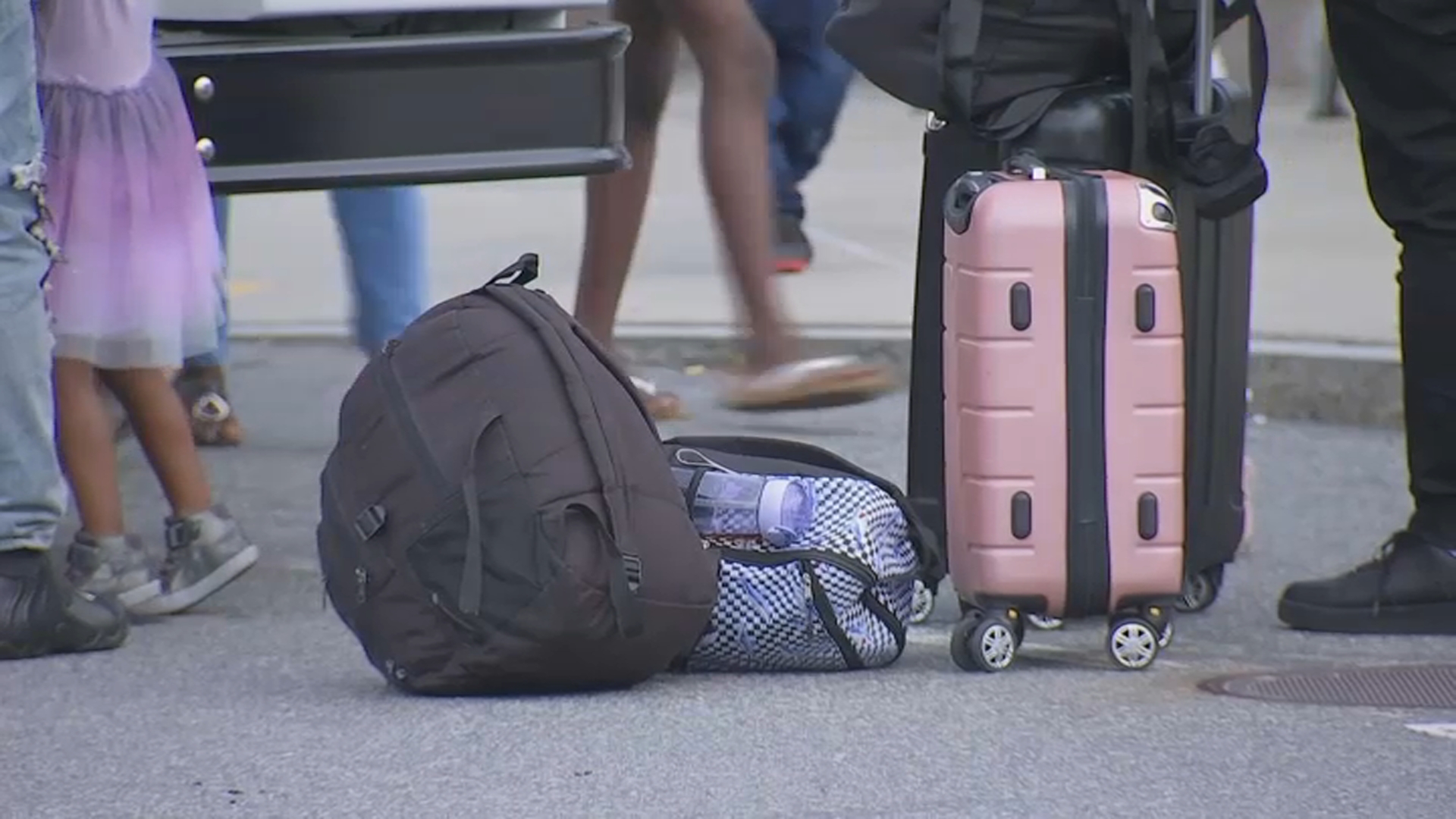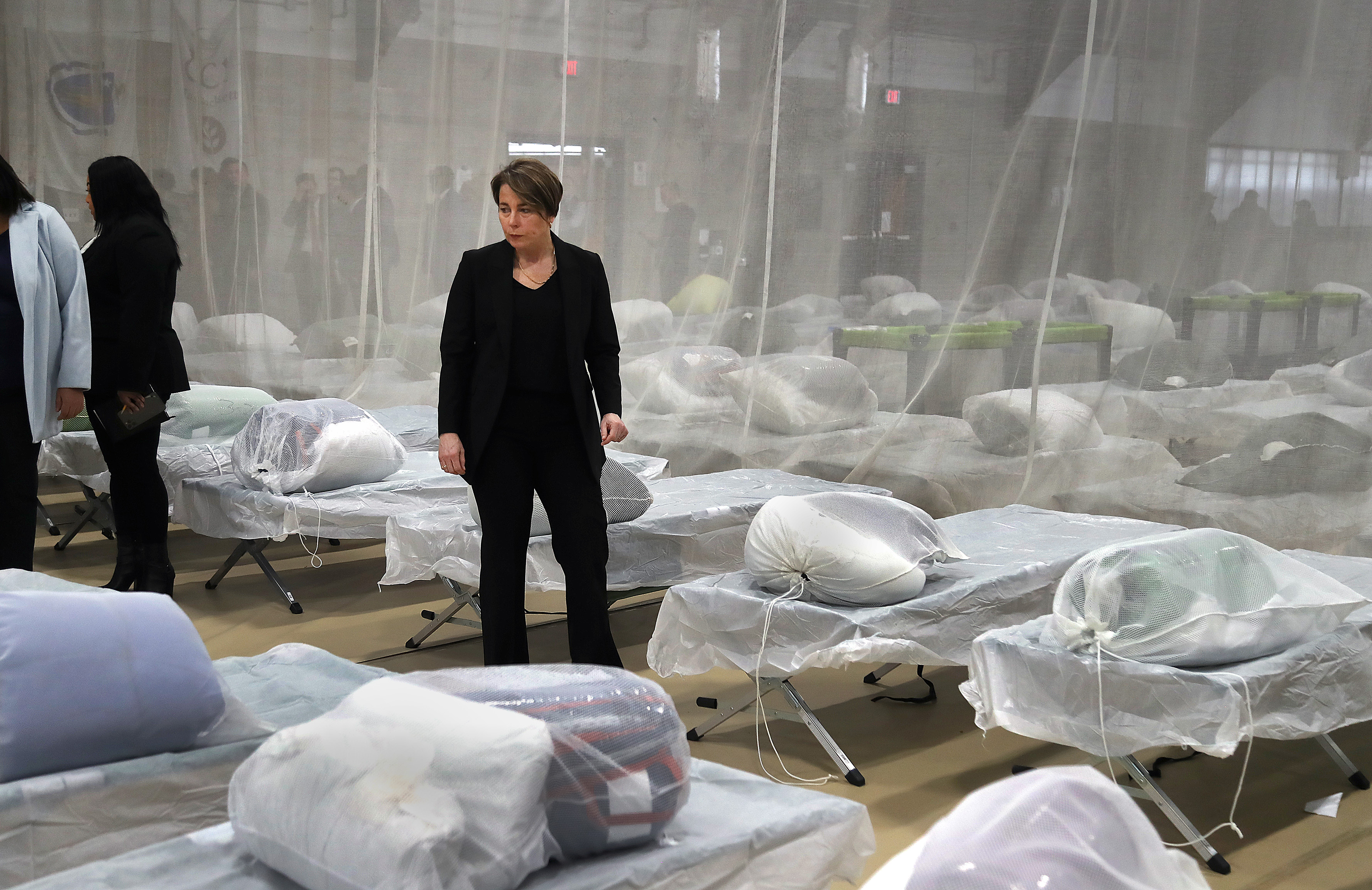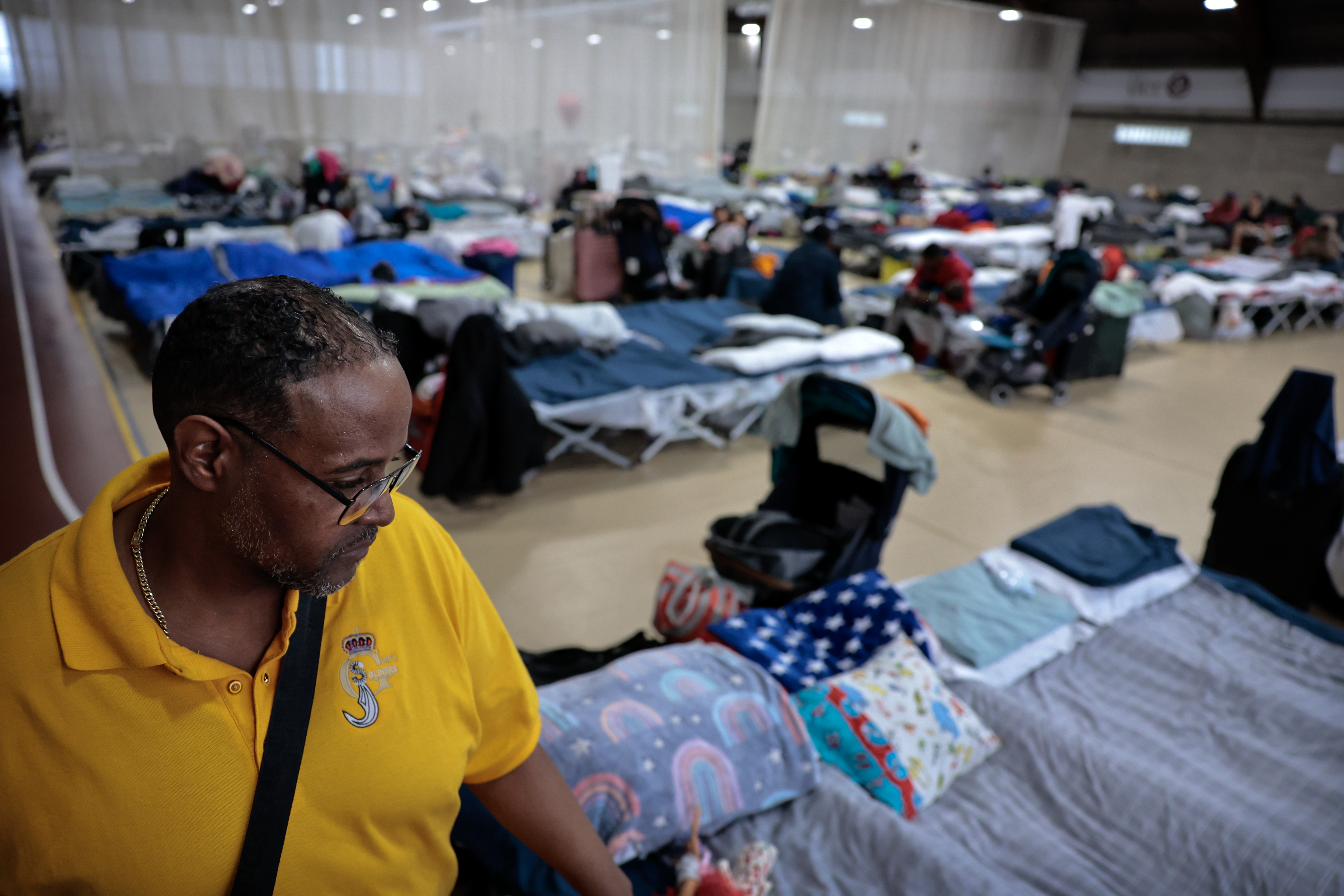Boston city councilors are calling on Gov. Maura Healey to reverse changes to Massachusetts' emergency shelter system after the administration put a five-day limit for overflow shelters.
The calls for action come just hours after the changes went into effect and on the heels of spirited protest.
WATCH ANYTIME FOR FREE
Stream NBC10 Boston news for free, 24/7, wherever you are. |
Nine of 13 city councilors signed onto this letter to Healey Thursday — the same day the governor's changes to the state's emergency housing shelter policy went into effect. Fifteen Chelsea elected officials are saying the state is turning away from its values.
Those changes limit stays in overflow shelters to five business days. However, with the system maxed out at roughly 8,000 families and Boston Logan International Airport no longer an option for migrant families needing a place to sleep, that puts a portion of the unhoused population with nowhere to go.
Get updates on what's happening in Boston to your inbox. Sign up for our News Headlines newsletter.
"To tell a family they have to leave a shelter after five days, it's inhumane," said District 5 Boston City Councilor Enrique Pepen.
"There's a growing sentiment across the state that we can't just leave people out on the streets," said Chelsea City Councilor at large Roberto Jimenez Rivera. "We have to make sure we look for solutions that lean into our values, rather than shying away from our values."
Under some 11th hour tweaks to the new policy, the Healey administration announced that shelter providers would have the discretion to extend emergency shelter to 30 business days and clarified that the intention is to help connect local and migrant families who’ve maxed out their time in overflow shelters with "safe, alternative housing" before being kicked out.
However, in their letter, city councilors urged the Healey administration to "reverse course," citing the state's 1983 right-to-shelter law, saying the Commonwealth is obligated to provide shelter to families with children.
In the letter, they said, "Housing is a human right, and we cannot sit idly by when faced with a policy that may result in young children being forced to sleep on our city streets."
"We had to express ourselves and let the governor know that this wasn't okay," District 6 councilor and workers' rights attorney Ben Weber said.
Weber said he wants the governor to review alternative solutions.
"The first solution is to go to the federal government and demand action on this really important issue, rather than kind of come up with a policy that looks like it was drawn up very quickly and without feedback from shelter providers," he said.
A spokesperson for Healey said there's just not additional capacity at this time, and the hope is "that families understand the lack of shelter space before they travel here."
District 2 Councilor Ed Flynn wrote his own letter voicing support for migrants arriving in Massachusetts but recognizing the state's limitations.
"The governor has a financial responsibility to ensure that the state spends its money appropriately. Cities and towns are just not able to afford this," Flynn said.
Healey continues to stress that Massachusetts is out of space and simply cannot handle any more arrivals.
"There won't be any changes to the policy," Healey said earlier in the week. "We don't have an unlimited checkbook or unlimited capacity."




